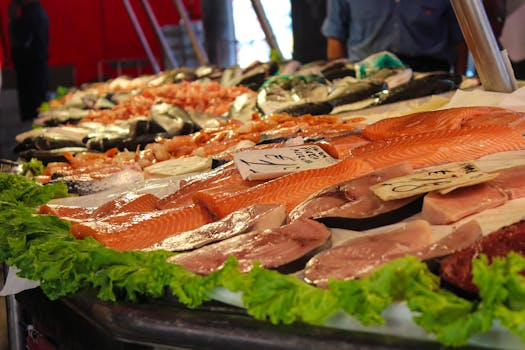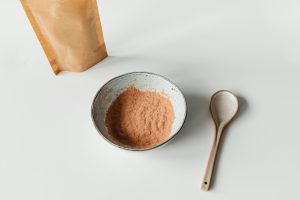Insect Protein: The Future of Sustainable Cooking and Nutrition
Insects have long been viewed as pests, nuisances and even scary creatures by humans. However, one thing we often overlook is their potential as a sustainable food source. With the world’s population ever-increasing and the demand for protein-rich foods rising, insect protein has emerged as a promising solution for both cooking and nutrition. In this article, we’ll explore the benefits of insect protein and how it could play a major role in shaping the future of sustainable cooking and nutrition.
The Rise of Insects as a Protein Source
Believe it or not, more than 2 billion people around the world already include insects in their regular diet. In many countries, they are considered a delicacy and are often served in a variety of forms such as fried, grilled, or as a powder in dishes or snacks. However, it is only in recent years that insect protein has gained attention as a more sustainable and eco-friendly alternative to traditional protein sources like meat and fish.
Eco-Friendly and Sustainable
The production of insect protein has a significantly lower environmental impact compared to traditional livestock farming. Rearing insects for food is more sustainable as they require less land, water, and feed than cattle, sheep, or pigs. Moreover, insects can be fed with organic waste, reducing food waste and minimizing pollution.
In addition, raising insects for food produces fewer greenhouse gas emissions compared to their four-legged counterparts. For example, producing one kilogram of beef emits 10 times more greenhouse gases than one kilogram of cricket protein. This makes insects a more eco-friendly and sustainable protein source, especially in the face of reducing carbon emissions and mitigating the effects of climate change.
Packed With Nutrients
Insects are not only eco-friendly, but they are also packed with essential nutrients. They are a rich source of protein, vitamins, and minerals, making them a valuable addition to our diets. Unlike traditional sources of protein, insects contain all essential amino acids, making them a complete protein source. They also have high levels of iron, calcium, and vitamin B12.
Additionally, insects are low in fat and cholesterol, making them a healthier protein option compared to red meat. This makes them attractive for consumers looking to improve their diets or maintain a healthy weight. In fact, studies have shown that incorporating insect protein into our diets can help reduce cholesterol levels and improve overall heart health.
Insect Protein in Cooking
Insect protein is not only nutritious and sustainable, but it is also versatile in the kitchen. It can be used as a substitute for traditional protein sources in a variety of dishes, from burgers and stir-fries to pasta sauces and energy bars. Insect protein has a mild earthy flavor that pairs well with a variety of ingredients and can add a unique twist to traditional recipes.
Encouraging Culinary Creativity
One of the most exciting aspects of insect protein is the potential it has to encourage culinary creativity. Chefs and food entrepreneurs are already experimenting with incorporating insect protein into their dishes and creating flavorful and nutritious meals. As more people become open to the idea of insect protein, we are sure to see a boom in the use of these sustainable ingredients in the kitchen.
Accessible and Affordable
Another benefit of using insect protein in cooking is its accessibility and affordability. In many countries, insects are commonly found and are relatively cheap to produce. This makes it a viable option for people in developing countries, where access to traditional protein sources may be limited or expensive.
Conclusion
Insect protein may still seem like an unconventional food source to many, but its potential as a solution to sustainable cooking and nutrition cannot be ignored. With its low environmental impact, high nutritional value, and versatility in cooking, it certainly has a place in our future food systems. As we continue to explore and embrace alternative protein sources, it’s safe to say that insects will play a major role, and maybe someday, they may even become a staple in our diets.










